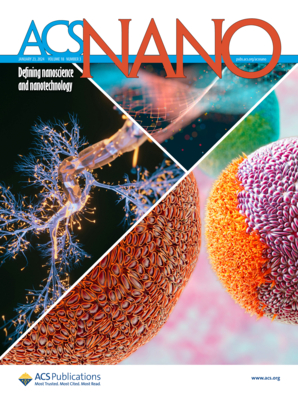Inflammatory Microenvironment-Responsive Microsphere Vehicles Modulating Gut Microbiota and Intestinal Inflammation for Intestinal Stem Cell Niche Remodeling in Inflammatory Bowel Disease
IF 15.8
1区 材料科学
Q1 CHEMISTRY, MULTIDISCIPLINARY
引用次数: 0
Abstract
Intestinal stem cells (ISCs) engage in proliferation to maintain a stable stem cell population and differentiate into functional epithelial subpopulations. This intricate process is upheld by various signals derived from the host and gut microbiota, establishing an ISC niche. However, during inflammatory bowel disease (IBD), this signaling niche undergoes dramatic changes, leading to impaired ISC and hindered restoration of the damaged intestinal epithelial barrier. This study introduces intestinal inflammatory microenvironment-responsive microsphere vehicles designed to remodel the ISC niche, offering an approach to treat IBD. Using an advanced emulsion technique, these microsphere vehicles specifically target colonic inflammation sites, delivering a responsive release of MXene and l-arginine. This delivery system is formulated to modulate intestinal flora and immune responses effectively. l-arginine is converted into nitric oxide to regulate the gut microbiome, while MXene serves as a nanoimmunomodulator to stabilize immune homeostasis. Our findings demonstrate that the anti-inflammatory properties of the microspheres are key to promoting epithelial repair and remodeling of the ISC niche. This study highlights the role of antioxidant microspheres as anti-inflammatory agents that indirectly support ISC function and gut regeneration.

求助全文
约1分钟内获得全文
求助全文
来源期刊

ACS Nano
工程技术-材料科学:综合
CiteScore
26.00
自引率
4.10%
发文量
1627
审稿时长
1.7 months
期刊介绍:
ACS Nano, published monthly, serves as an international forum for comprehensive articles on nanoscience and nanotechnology research at the intersections of chemistry, biology, materials science, physics, and engineering. The journal fosters communication among scientists in these communities, facilitating collaboration, new research opportunities, and advancements through discoveries. ACS Nano covers synthesis, assembly, characterization, theory, and simulation of nanostructures, nanobiotechnology, nanofabrication, methods and tools for nanoscience and nanotechnology, and self- and directed-assembly. Alongside original research articles, it offers thorough reviews, perspectives on cutting-edge research, and discussions envisioning the future of nanoscience and nanotechnology.
 求助内容:
求助内容: 应助结果提醒方式:
应助结果提醒方式:


